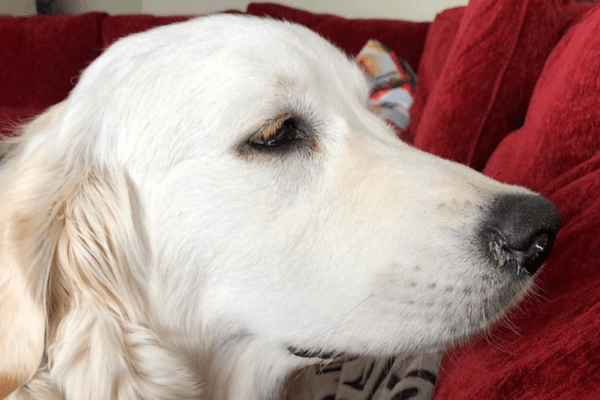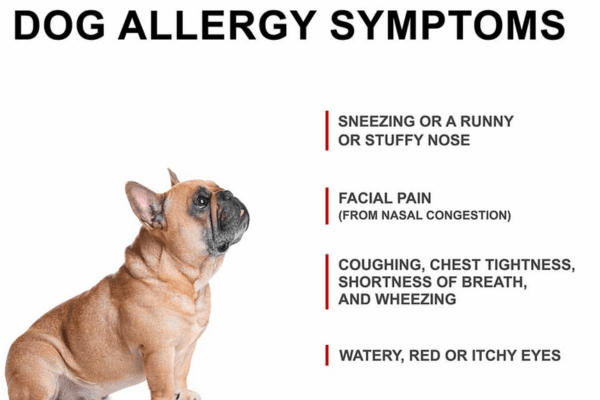According to recent studies, dog sneezing is a common occurrence in dogs and can often be indicative of underlying health issues. Understanding the reasons behind excessive sneezing in dogs is crucial for pet owners in order to provide appropriate care and ensure their well-being. This article aims to explore various potential causes for why dogs may experience frequent bouts of sneezing.
The first section will delve into allergies and irritants that can trigger sneezing in dogs. It will examine how environmental factors such as pollen, dust mites, or certain chemicals can affect a dog’s respiratory system, leading to persistent sneezing. Additionally, the article will discuss respiratory infections that could be responsible for this symptom.
Furthermore, nasal blockages due to foreign objects or tumors will be explored as potential factors contributing to excessive sneezing. Dental problems may also play a role in triggering this behavior.
Finally, the article will highlight other underlying health conditions that might manifest through increased sneezing episodes in dogs.
By gaining insight into these possible causes, pet owners can better identify when their dog’s sneezing warrants veterinary attention and take appropriate measures to alleviate any discomfort or potential risks associated with this recurrent issue.
Key Takeaways
- Chronic sneezing in dogs can be caused by nasal polyps or tumors.
- Dental problems that extend into the nasal cavity can also result in chronic sneezing in dogs.
- Certain systemic diseases, such as fungal infections and immune-mediated disorders, can contribute to chronic sneezing in dogs.
- It is important for dog owners to consult a veterinarian if their dog is experiencing chronic sneezing along with other concerning symptoms.
Allergies and Irritants Dog Sneezing
Allergies and irritants can contribute to excessive sneezing in dogs is a natural reflex that helps remove foreign particles from the nasal passages. However, when dogs sneeze excessively, it may indicate an underlying issue such as allergies or irritants in their environment.
Common allergens include pollen, dust mites, mold spores, and certain foods. These allergens can trigger an immune response in sensitive dogs, leading to symptoms like sneezing, itching, and watery eyes.

Prevention tips for allergies and irritants include minimizing exposure to potential triggers. Regularly cleaning the dog’s living space and using hypoallergenic bedding can reduce the presence of dust mites. Avoiding areas with high pollen levels during peak seasons can also help alleviate symptoms. Additionally, feeding the dog a balanced diet with high-quality ingredients may strengthen its immune system and minimize allergic reactions.
By understanding the causes of sneezing related to allergies and irritants, dog owners can take appropriate measures to prevent excessive sneezing and provide their furry companions with a comfortable living environment.
Respiratory Infections
Respiratory infections are a common health concern in dogs and can be caused by various pathogens such as bacteria, viruses, or fungi.

It is important for dog owners to be aware of the symptoms associated with respiratory infections, which may include coughing, sneezing, nasal discharge, and difficulty breathing.
Treatment options for respiratory infections in dogs typically involve a combination of antibiotics, antiviral medications, supportive care, and addressing any underlying conditions that may have predisposed the dog to infection.
Common respiratory infections in dogs
Many commonly encountered infections can affect the respiratory system of dogs, causing excessive sneezing. These infections include:

- Canine influenza: This highly contagious viral infection can lead to pneumonia and other severe respiratory complications in dogs.
- Kennel cough: Also known as infectious tracheobronchitis, it is caused by a combination of viruses and bacteria. Vaccination is an effective prevention method.
- Bordetella bronchiectasis: This bacterium is one of the primary causes of kennel cough. Regular vaccination and maintaining good hygiene in kennels can reduce the risk.
- Pneumonia risk: If left untreated, respiratory infections such as canine influenza and kennel cough can progress to pneumonia, which can be life-threatening for dogs.
Prevention methods for these respiratory infections include proper vaccination, avoiding crowded places with sick dogs, regular cleaning and disinfection of dog’s living areas, and practicing good hygiene when handling or interacting with dogs.
By implementing these preventive measures, pet owners can help protect their furry friends from potential respiratory infections.
Symptoms to look out for
One important aspect to consider is the identification of specific symptoms that may indicate a respiratory infection in dogs. When it comes to dogs sneezing excessively, it is crucial to monitor for other accompanying signs such as mucus production and nasal discharge.

These symptoms can be indicative of an underlying respiratory infection in dogs. Excessive mucus production can result from inflammation or irritation within the respiratory system, while nasal discharge may vary in consistency and color depending on the cause of the infection.
It is essential to observe any changes in these symptoms, as they can provide valuable information for veterinarians when diagnosing and treating respiratory infections in dogs. By paying attention to these specific symptoms, dog owners can better understand their pet’s condition and seek appropriate medical care if necessary.
Treatment options
Treatment options for respiratory infections in dogs include medication, such as antibiotics or antivirals. These medications can help alleviate symptoms and target the underlying cause of the infection, allowing the dog to breathe more freely and comfortably. It is important to consult with a veterinarian before starting any treatment. They will be able to evaluate the dog’s condition and prescribe the appropriate medication.
In some cases, over-the-counter medications may also be recommended to relieve congestion and reduce sneezing. Additionally, it is essential to provide a clean and comfortable environment for the dog. This helps minimize exposure to allergens or irritants that may trigger sneezing. Regular grooming can also help remove any potential irritants from the dog’s fur.
Overall, identifying and addressing the root cause of sneezing in dogs is crucial for effective treatment and ensuring their well-being.
Nasal Blockages
Nasal blockages can significantly impede a dog’s ability to breathe properly, causing distress and discomfort for the animal. There are various causes of nasal blockages in dogs, including foreign objects and sinus infections. When a dog inhales a foreign object such as grass seeds or small toys, it can become lodged in their nasal passages, leading to sneezing and difficulty breathing. Sinus infections can also cause nasal blockages as the inflammation and swelling of the sinuses obstruct the airflow.
To address nasal blockages in dogs, veterinarians may recommend the following treatment options:
- Removal of foreign objects through endoscopy or surgery.
- Antibiotics to treat sinus infections.
- Nasal decongestants to reduce inflammation.
- Steam inhalation therapy to alleviate congestion.
By addressing nasal blockages promptly and providing appropriate treatment, pet owners can help their dogs regain normal respiratory function and alleviate any discomfort they may be experiencing.
Dental Problems
Dental problems in dogs can cause significant discomfort and hinder their ability to eat properly, often resulting in poor nutrition and weight loss. Tooth decay and gum disease are common dental issues that can lead to sneezing in dogs. Tooth decay occurs when bacteria attack the tooth enamel, causing it to deteriorate. This can result in pain and inflammation, leading to sneezing as a response.
Gum disease, on the other hand, occurs when plaque buildup causes inflammation of the gums. If left untreated, gum disease can progress to periodontitis, which affects the tissues supporting the teeth. Sneezing may occur as a result of irritation from infected gums or loose teeth. Regular dental care, including brushing your dog’s teeth and regular veterinary check-ups, is essential for maintaining good oral health and preventing these issues from causing further complications.
| Dental Problems | Symptoms |
|---|---|
| Tooth Decay | – Pain |
| – Inflammation | |
| Gum Disease | – Swollen Gums |
| – Loose Teeth |
If you can’t find the right dog for you to adopt locally, please consider adopting a dog from Bone Voyage Dog Rescue. We’ll fly with your dog to you.
Other Underlying Health Issues
One potential cause of excessive sneezing in dogs is other underlying health issues that may be present. Chronic sneezing in dogs can be indicative of various health conditions, and it is important for pet owners to be aware of these possibilities.
One common issue associated with chronic sneezing is nasal discharge in dogs, which can range from clear and watery to thick and discolored. This discharge may indicate an infection or inflammation within the nasal passages or sinuses.
Other possible underlying health problems that may cause excessive sneezing include:
- Allergies
- Foreign objects lodged in the nose
- Nasal polyps or tumors
- Dental problems extending into the nasal cavity
- Certain systemic diseases like fungal infections or immune-mediated disorders.
It is crucial for dog owners to consult a veterinarian if their dog exhibits chronic sneezing accompanied by other concerning symptoms.
See Also:
Conclusion
Dog sneezing is a common and natural behavior in dogs that serves various purposes. It is typically caused by irritants in the nasal passages, allergies, infections, excitement, or even playfulness. Occasional sneezing is generally not a cause for concern, but if it becomes persistent or is accompanied by other symptoms such as nasal discharge, lethargy, or difficulty breathing, it is essential to seek veterinary attention promptly. Understanding the reasons behind your dog’s sneezing and addressing any potential underlying issues can help ensure their overall well-being and comfort. Remember, a happy and healthy dog will have the occasional sneeze, but monitoring their health and seeking professional advice when needed is key to maintaining their quality of life.
Frequently Asked Questions
Can my dog’s sneezing be caused by seasonal allergies?
Seasonal allergies can cause excessive sneezing in dogs. To address this, dog owners should consider dog sneezing remedies and take preventive measures to minimize exposure to allergens, such as keeping their environment clean and monitoring their pet’s diet.
What are some common irritants that can trigger excessive sneezing in dogs?
Common irritants that can trigger excessive sneezing in dogs include pollen, dust mites, mold spores, and certain chemicals. These allergens can cause canine allergies, leading to persistent sneezing in dogs.
How can I differentiate between a respiratory infection and a regular cold in my dog?
Differentiating between a respiratory infection and a regular cold in dogs involves observing specific symptoms such as persistent coughing, difficulty breathing, nasal discharge, and fever. Home remedies for dog colds include providing warmth, hydration, and monitoring their condition closely.
Are there any household items or substances that could be causing my dog’s sneezing?
Household cleaning products and air fresheners can potentially cause sneezing in dogs due to their strong odors or chemical irritants. It is important to ensure proper ventilation and minimize exposure to these substances to prevent respiratory discomfort in pets.
Can dental issues, such as tooth decay or gum disease, lead to frequent sneezing in dogs?
Dental issues such as tooth decay and gum disease can lead to sinus infections and nasal congestion in dogs, which may result in frequent sneezing. Regular dental care is important to prevent these pro
